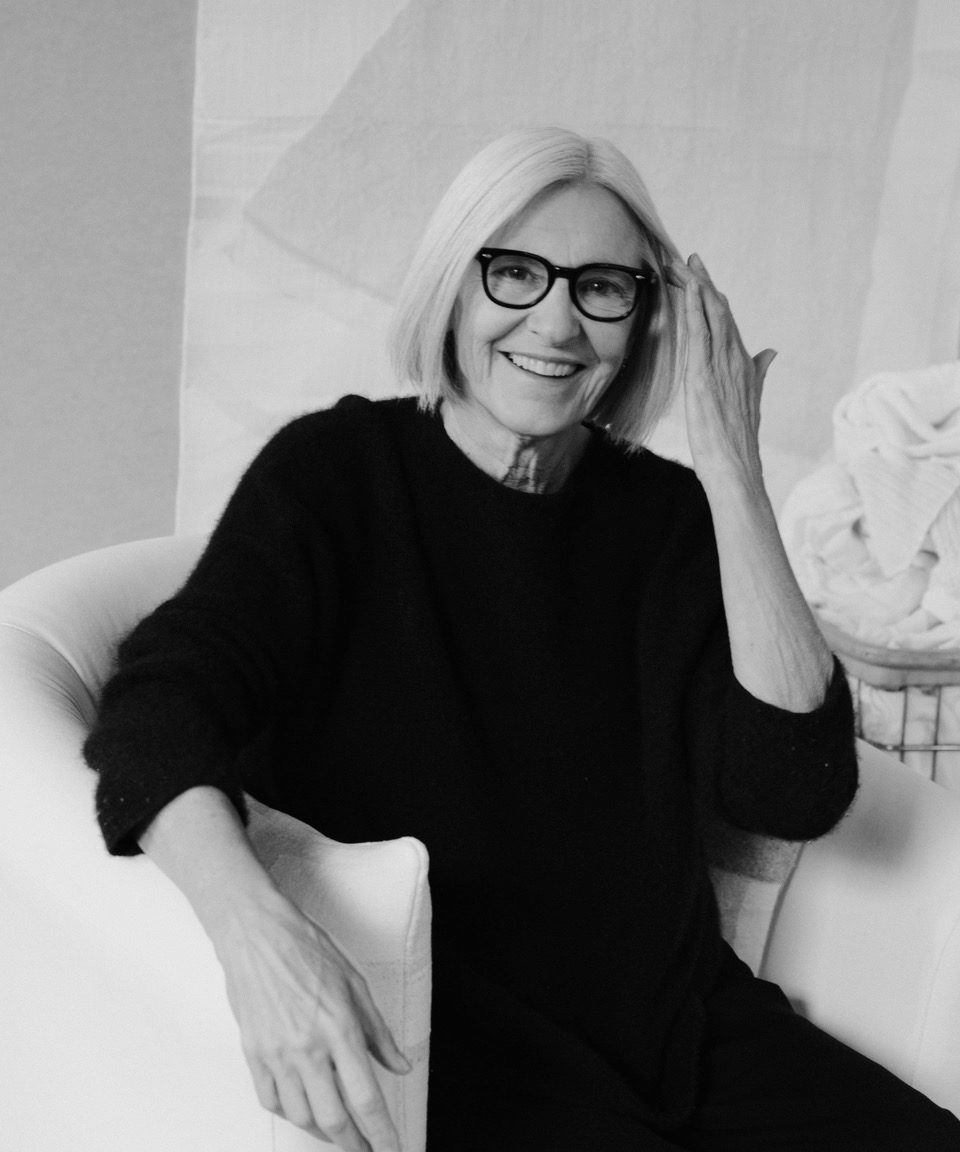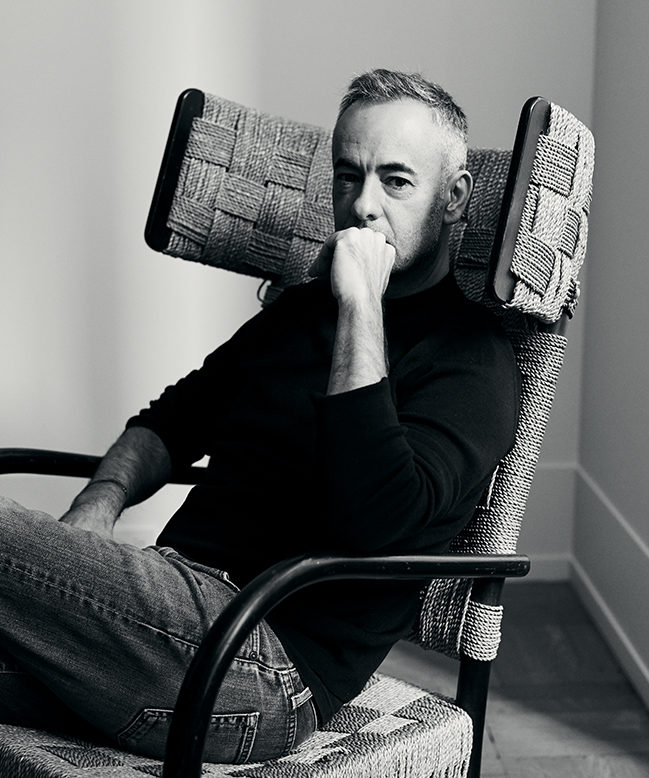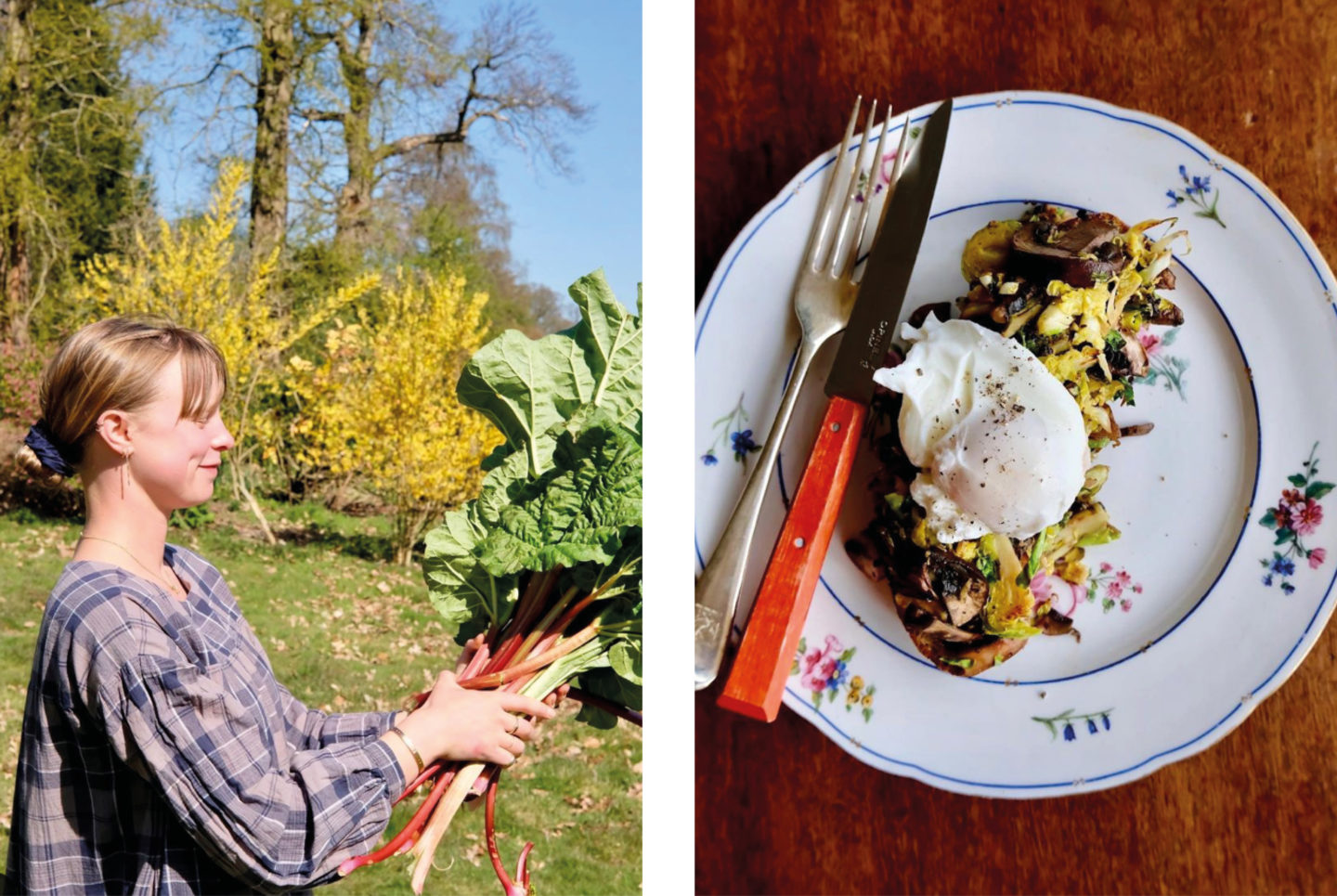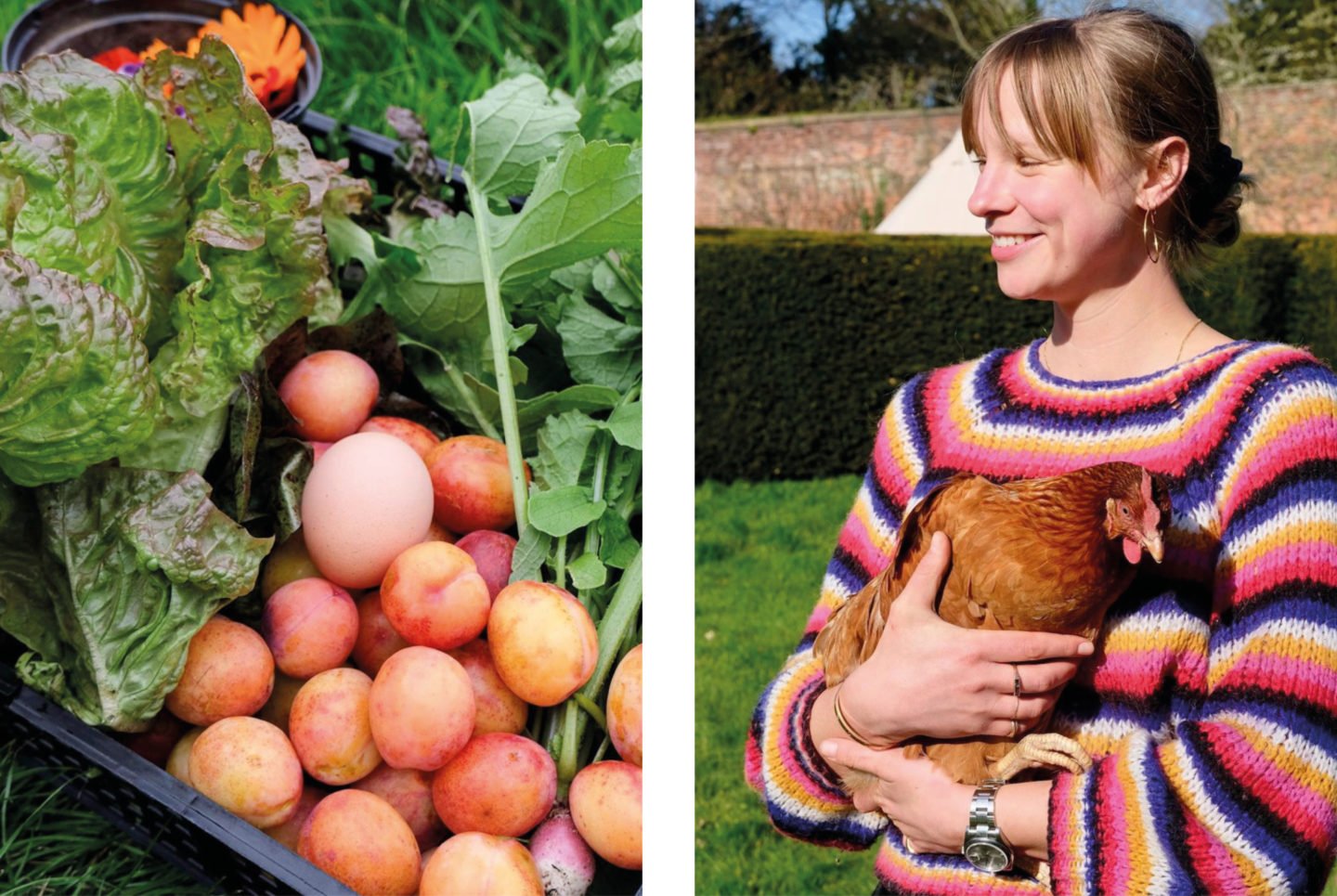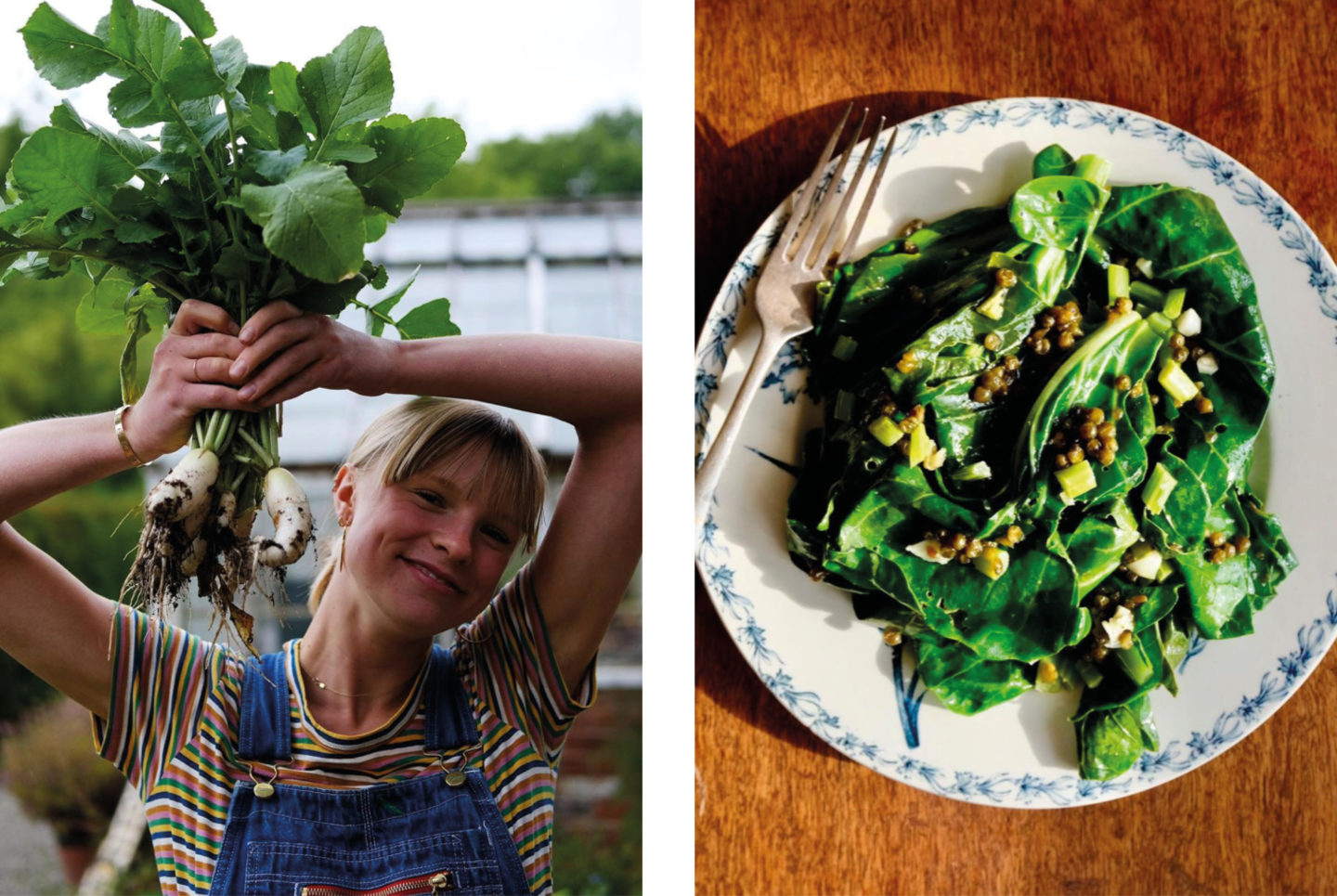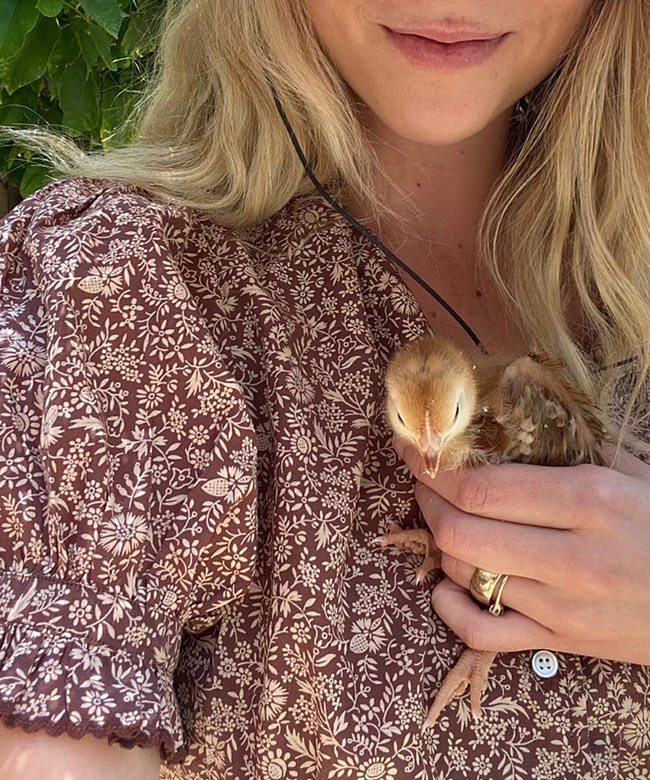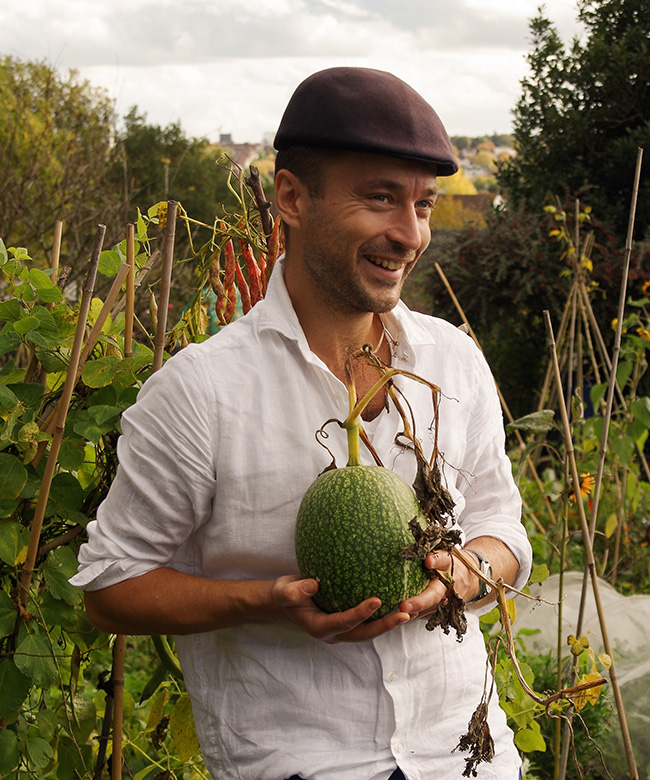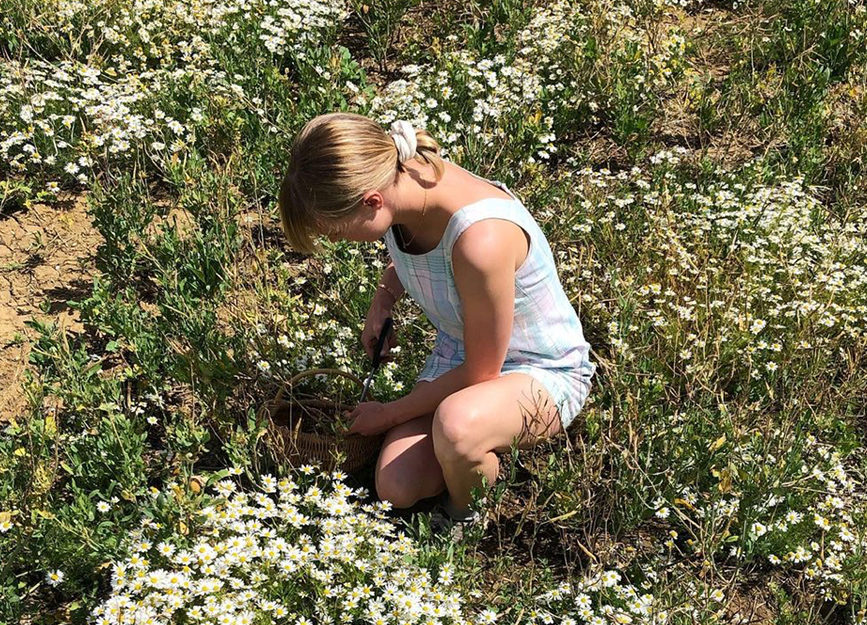

@xanthegladstone
@patricianiven
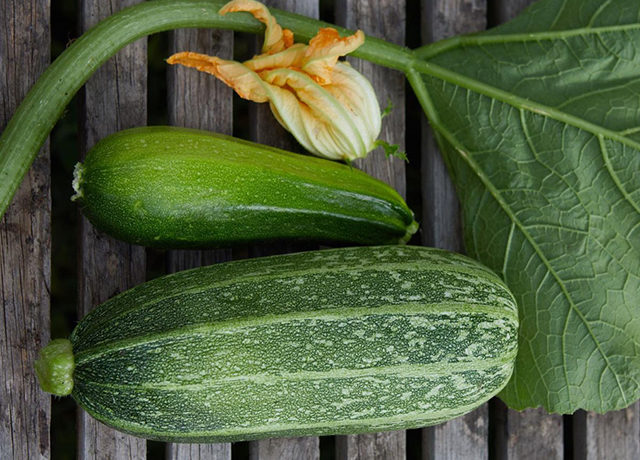

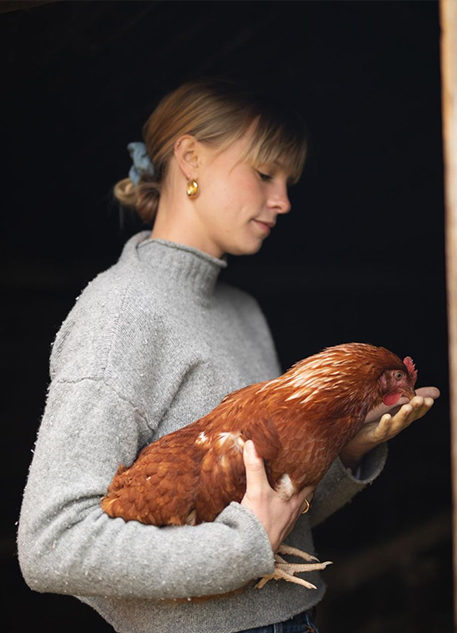

@woodandmeadow @jodydaunton
Food & Garden
Organic Growing & Cooking: A Sustainable Life with Xanthe Gladstone
Xanthe is a chef and organic grower based in North Wales. She is partially self taught but also trained at Ballymaloe cookery school in Ireland where she also learnt about keeping animals, growing vegetables, and what it takes to be a part of a fully sustainable food system. Xanthe has an ever-growing passion for connecting people with where their food came from, how it was produced, and what the benefits are of prioritising well-sourced produce for us and our environment. Above all, Xanthe loves nothing more than cooking and sharing delicious food with people!
“Pay attention to where your food is coming from and think more about the journey it must’ve had to make to get to you.”
How does your day start? Tell us a bit about your morning routine.
I usually start my day with a bit of exercise. This will either be just a few minutes of stretching, or pilates, or a run. Exercising helps me feel energised for the rest of the day. After showering I’ll walk my dogs, I have two whippets so they need a good run and then they’ll sleep pretty much for the rest of the day. After I get back I’ll have breakfast and get on with my day of work.
How do you interact with nature when it comes to the food you grow/prepare/eat?
I try to follow nature as much as I can when it comes to food. That means that I mostly eat food at the time that it’s in season in the UK, these are when they’re meant to be eaten by us and so the nutritional content is higher and it will probably taste better. I am always looking around and seeing what wild food I can eat – it’s important to understand fully what is edible and what is not – but it’s a wonderful feeling to eat food directly from what’s around you. When it comes to growing, I just grow the food that I love to eat. I have experimented with lots of things that don’t work, and I’ve slowly started to figure out what works for me and what doesn’t.
Best part of your day in terms of food?
I love breakfast but I think that the best part of my day is actually supper at the end of the day because I get to spend a bit more time preparing for it and make something a little more exciting than I do in the mornings.
Favourite season or month for food and why?
My favourite season is late summer/early autumn, so probably around September. There is still so much abundance of vegetables in the garden but wonderful things like mushrooms are starting to appear in the wild and so it seems like our opportunities are endless.
Where do you source your food from?
I am lucky enough to be able to grow my own vegetables so I often don’t need to buy many, but when I do I will get a weekly vegetable box from Abel & Cole. For dairy, I’d go to Neal’s Yard, and then I get my flour from Gilchesters. I have twenty hens so I don’t have to buy eggs, which I eat almost daily. I am a vegetarian so I don’t buy meat. I always prioritise buying my food locally and with independent suppliers but I am definitely not perfect and will shop in supermarkets when I need to, which there is nothing wrong with, it’s just about being mindful about the products that you do buy and making your own informed decisions about this.
If you garden, what is the hardest aspect of gardening and growing your own food that you didn’t foresee? How have you overcome it?
I think I maybe oversaw quite how much consistent work it takes. It is not a situation of just planting seeds and letting them grow but you have to keep coming back to it, keep planting seeds, and nurturing them. It’s about being organised and doing a little bit every day.
If you garden, what are your favourite crops you are growing right now? What you would like to grow that you currently don’t?
I love growing tomatoes because there is nothing more delicious than eating a tomato that has been warmed in the sun doused in olive oil and salt. I would like to grow more winter vegetables in general because I always lose my motivation to grow in the winter but it’s so wonderful to have fresh produce all year round.
“I always prioritise buying my food locally and with independent suppliers but I am definitely not perfect and will shop in supermarkets when I need to.”
Who and or what is your guiding inspiration when it comes to food?
I have so many people and cooks who I look to for inspiration, I am also inspired by countries like Italy and India to get inspiration from. I think when it comes to cooking I look to what’s in season to get excited about what to cook. There’s always such a great build up for me before different vegetables come into season, for example, right now I am thinking about asparagus and all of the different dishes I am going to cook with it, because the season begins very soon.
What’s an average weekday dinner for you?
I love cooking pasta during the week because it can either be minimum or maximum effort depending on your mood and what you have the energy for. Maximum energy would be making the pasta from scratch and minimum would be store bought pasta with a really simple vegetable sauce.
Favourite vegetable to cook with and why?
I have so many favourites! I think aubergine would have to be up there because there are so many different ways that you can cook it, it provides so much flavour but also so much flavour can be added to it.
As the sunset begins, how do you close your day?
I will end my working day with cooking and eating my supper, then I’ll have a bath, a big glass of magnesium which helps me sleep, and a cup of herbal tea. Sleep is important for me but it doesn’t come very naturally so I have to work hard to set myself up for a good night’s sleep.
Best advice you have for someone looking to eat more sustainably?
Just pay attention to where your food is coming from and think more about the journey it must’ve had to make to get to you. If you can, make the decision to shop independently and connect with your food suppliers, ask them about the produce, and start to learn a bit more about what’s in season and when.
What are your latest efforts towards living a greener life?
I really take time in limiting my food waste as much as possible. I have my own compost so I can compost a lot of my food waste, and a lot of my cooked food waste gets eaten by my chickens. Other than that, I try to make sure I am only buying and cooking what I need. When you buy vegetables, take them straight out of the plastic, wash them, and store them in a tea towel or a tupperware as they’ll last a lot longer this way.
In your opinion, what is the most important food item to make sure is organic?
There are two great lists called the Dirty Dozen and the Clean Fifteen which list the vegetables that, when grown non-organically, are most likely to be doused in endless chemicals (Dirty Dozen) and a list of those that need less chemicals to grow efficiently (Clean Fifteen) which is really useful to guide you when shopping. I personally would always buy all organic vegetables when I possibly can.
Words and imagery via @xanthegladstone















